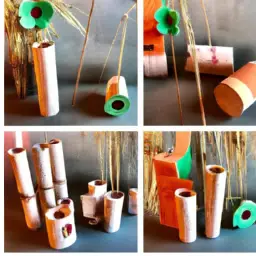Hey there,
I’m thrilled to share with you 14 ingenious ways I’ve discovered to tackle waste and embrace eco-friendly bamboo toilet paper.
In this article, I’ll be covering sustainable packaging solutions, reducing single-use plastics, composting, minimizing food waste, and adopting a zero-waste lifestyle.
Get ready to make a positive impact on the environment while still keeping things convenient and comfortable.
Let’s dive in!
Sustainable Packaging Solutions
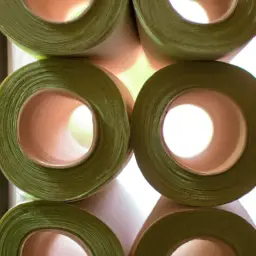
How can I find sustainable packaging solutions for eco-friendly bamboo toilet paper?
As someone who’s passionate about reducing waste and embracing eco-friendly alternatives, I’ve explored various options for sustainable packaging. One effective solution is the use of reusable containers. Instead of purchasing toilet paper that comes in plastic packaging, I opt for brands that offer a refillable option. These containers are made from durable materials and can be easily refilled with biodegradable bamboo toilet paper. This not only reduces the amount of plastic waste generated but also ensures that the packaging is reusable and long-lasting.
Another important consideration is the use of biodegradable alternatives. Many eco-friendly bamboo toilet paper brands are now using packaging materials that are biodegradable. These materials break down naturally over time and don’t contribute to the growing problem of plastic pollution. By choosing brands that prioritize biodegradable packaging, I can ensure that my choice of toilet paper aligns with my commitment to sustainability.
Reducing Single-Use Plastics

As an advocate for sustainability, I actively seek ways to reduce my consumption of single-use plastics, including when it comes to choosing eco-friendly bamboo toilet paper. Single-use plastics have become a major environmental concern, contributing to pollution and harming marine life. To address this issue, I have explored alternative materials and plastic-free alternatives to reduce my plastic footprint.
One effective way to reduce single-use plastics is by using reusable alternatives. For example, instead of using plastic water bottles, I carry a reusable stainless steel bottle with me. This not only reduces plastic waste but also saves money in the long run. Another option is to use glass or stainless steel containers for food storage, eliminating the need for plastic wrap or ziplock bags.
In addition to reusable alternatives, there are also plastic-free alternatives available for everyday items. Bamboo toothbrushes, stainless steel razors, and cloth grocery bags are just a few examples. These products are made from sustainable materials and can be reused or composted, reducing the amount of plastic waste generated.
By actively seeking out alternative materials and plastic-free alternatives, I am making a conscious effort to reduce my reliance on single-use plastics. It may seem like a small change, but every action counts when it comes to protecting our environment. Let’s embrace these eco-friendly options and work towards a plastic-free future.
| Alternative Materials | Plastic-Free Alternatives |
|---|---|
| Bamboo | Bamboo toothbrushes |
| Stainless steel | Stainless steel razors |
| Glass | Glass containers |
| Cloth | Cloth grocery bags |
Composting: Turning Waste Into Fertilizer
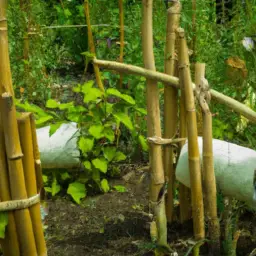
I regularly compost my organic waste to transform it into nutrient-rich fertilizer for my garden. Composting is a simple and effective method of organic waste management that offers numerous benefits.
Firstly, it helps reduce the amount of waste that ends up in landfills. When organic waste is composted, it decomposes naturally and doesn’t produce harmful greenhouse gases like methane, which is a major contributor to climate change.
Composting also helps improve soil quality and fertility. The nutrient-rich compost acts as a natural fertilizer, providing essential nutrients to plants and promoting healthy growth. It also enhances soil structure, allowing better water retention and drainage. This is particularly beneficial for gardens and farms as it reduces the need for synthetic fertilizers and chemical additives.
Another advantage of composting is that it reduces the need for conventional waste management methods, such as incineration or landfilling. These methods can be costly and have negative environmental impacts. Composting, on the other hand, is a sustainable and eco-friendly solution that can be easily implemented at home or in community gardens.
Minimizing Food Waste in the Kitchen
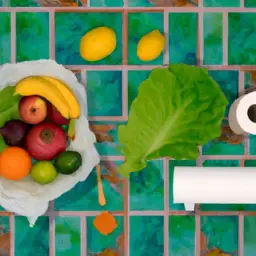
While cooking, I make a conscious effort to minimize food waste by planning my meals, using leftovers creatively, and properly storing perishable items. Reducing food waste isn’t only good for the environment but also for my wallet.
One of the ways I reduce food waste is by planning my meals in advance. I create a weekly menu and make a shopping list accordingly, buying only what I need. This helps me avoid buying excess food that may end up going to waste.
Another strategy I use is to get creative with leftovers. Instead of throwing away leftover ingredients or meals, I find ways to repurpose them into new dishes. For example, leftover roasted vegetables can be turned into a delicious soup or added to a salad. Stale bread can be transformed into croutons or breadcrumbs for future recipes. By using my creativity and experimenting in the kitchen, I can give new life to leftovers and prevent them from ending up in the trash.
Properly storing perishable items is also crucial in minimizing food waste. I make sure to store fruits and vegetables in the refrigerator to keep them fresh for longer. Additionally, I utilize airtight containers to store leftovers, which helps preserve their quality and flavor.
Adopting a Zero-Waste Lifestyle
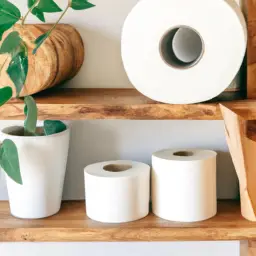
To fully embrace a zero-waste lifestyle, it’s important to make mindful choices and actively reduce waste in every aspect of daily life. This includes not only minimizing food waste in the kitchen, but also considering other areas where waste can be reduced.
One important aspect to consider is eco-friendly fashion. Fast fashion has become a major contributor to waste and pollution, so opting for sustainable and ethically made clothing is a great way to reduce waste in the fashion industry. By choosing clothing made from organic or recycled materials and supporting brands that prioritize sustainable practices, we can make a positive impact on the environment.
Another important aspect of living a zero-waste lifestyle is sustainable transportation. Traditional modes of transportation, such as cars, contribute significantly to air pollution and waste. To reduce our impact, we can opt for more sustainable transportation options like walking, cycling, or using public transportation whenever possible. Additionally, carpooling and using electric vehicles are great ways to reduce emissions.
Conclusion
In conclusion, embracing eco-friendly bamboo toilet paper is a small but impactful step towards tackling waste. By choosing sustainable packaging solutions, reducing single-use plastics, composting waste, and minimizing food waste, we can adopt a zero-waste lifestyle.
These ingenious ways not only help the environment but also encourage a more sustainable future for generations to come. Let’s make conscious choices and work together towards a greener and cleaner planet.

